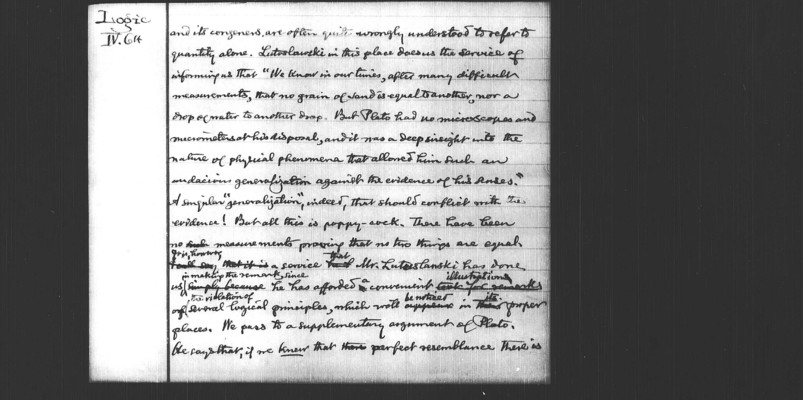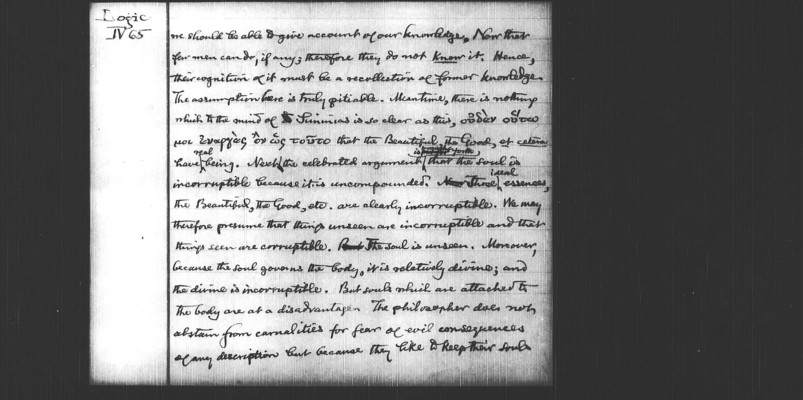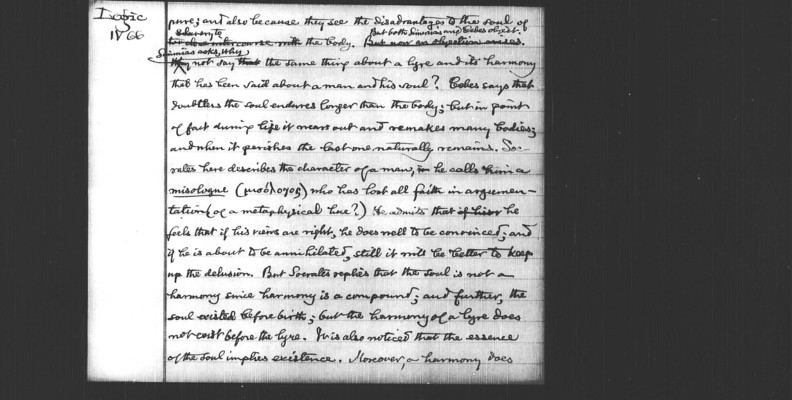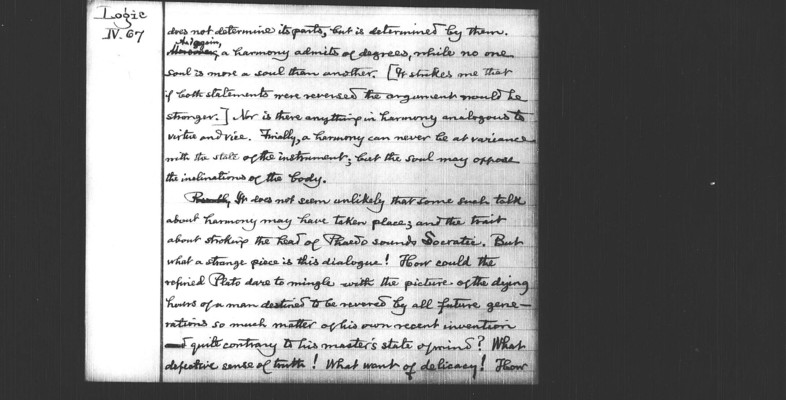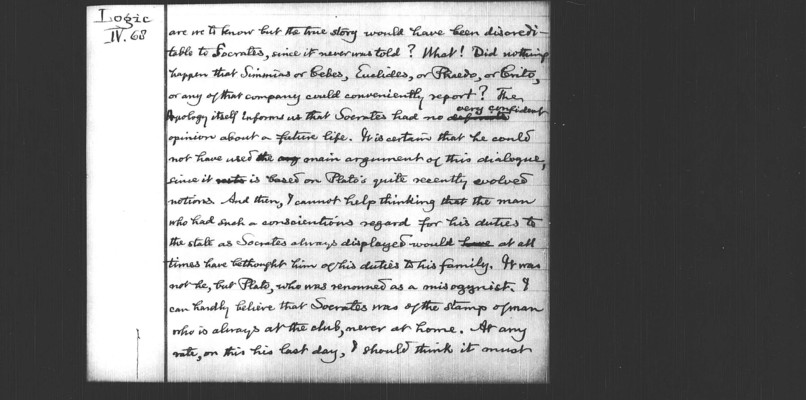Pages
56
Logic IV. 64 and its congenes are often quite wrongly understand to refer to quantity alone. Lutoslawski in this place does us the service of informing us that we know in our times after many difficult measurements that no grain of sand is equal to another nor a drop of water to another drop. But Plato had no microscopes and micrometers at his disposal and it was a deep insight into the nature of physical phenomena that allowed him such as audacious generalization against the evidence of his senses. A singular generalization indeed that should conflict with the evidence! But all this is poppy-cock. There havea been no measurements proving that no two things are equal. It is however a service that Mr. Lutsoslawski has done us in making the remark since he has offered a convenient illustration of the violation of several logical principles which will be noticed in its proper places. We pass to a supplementary argument of Plato. He says that if we knew that perfect resemblance there is
57
Logic IV. 65 we should be able to give account of our knowledge. Now that few men can do if any therefore they do not know it. Hence their cognition of it must be a recollection on former knowledge. The assumption here is truly pitiable. Meantime there is nothing which to the mid of Simmias is so clear as this [foreign text] that the beautiful the good et cetera have real being. Next the celebrated argument is that the soul is incorruptible because it is uncompounded. Those ideal esssences the beautiful, the good etc. are clearly incorruptible. We may therefore presume that things unseen are incorruptible and that things seen are corruptible. The soul is unseen. Moreover because the soul governs the body it is relatively divine and the divine is incorruptible. But sould which are attached to the body are at a disadvantage. The philosopher does not abstain from carnalities for fear of evil consequences of any description but because they like to keep their souls
58
Logic IV 66 pure and also because they see the disadvantages to the sould of subservery to the body. But both Simmias and Cebes object. Simmias asks why not say the same thing about a lyre and its harmony that has been said about a man and his soul? Cebes says that doubtless the soul endures longer that they body but in point of fact during life it wears out and remakes many bodies and when it perishes the last one naturally remains. Socrates here describes the character of a man he calls him a misologne [foreign text] who has lost all faith in argumentation of a metaphysical hue? He admints that he feels that if his views are right he does well to be convinced and if he is about to be annihilated still it will be better to keep up the delusion. But Socrates replies that the sould is not a harmony since harmony is a compound and futher the soul existed before birth but the harmony of alyre does not exist before the lyre. it is also noticed that the essence of the soul implies existence. Moreover harmony does
59
Logic IV. 67 does not determine its parts but is determined by them. And again a harmony admits of degrees while no one sould is more a soul than another. It striked me that if both statements were reversed the argument would be stronger. Nor is there anything in harmony analogous to virtue and vice. Finally a harmony can never be at variance with the state of the instrument but the sould may oppose the inclinations of the body. It does not seem unlikely that some such talk about harmony may have taken place and the trait about stroking the head of Phaedo sounds Socratic. But what a strange is that dialogue! How could the refined Plate date to mingle with the picture of the dying hours of a man destined to be revered by all future generations so much matter of his own recent invention quite contrary to his master's state of mind? What defective sense of truth! What wants of delicacy! How
60
Logic IV. 68 are we to know but the true story would have been discreditable to Socrates since it never was told? What! Did nothing happen that Simmias or Cebes or Phaedo or Crito or any of that company could conveniently report? The apology itself informs us that Socrates has no very confident opinion about a future life. It is uncertain that he could not have used the main argument of this dialogue since it is based on Plato's quite recently evolved notions. And then I cannot help thinking that the man who had such a conscientous regards for this duties to the state as Socrates always displayed would at all times have bethought him of his duties to his family. It was not he but Plato who was renowned as a misogynist. I can harldly believe that Socrates was of the stamp of man who is always at the club never at home. At any rate on this his last day I should think it must
